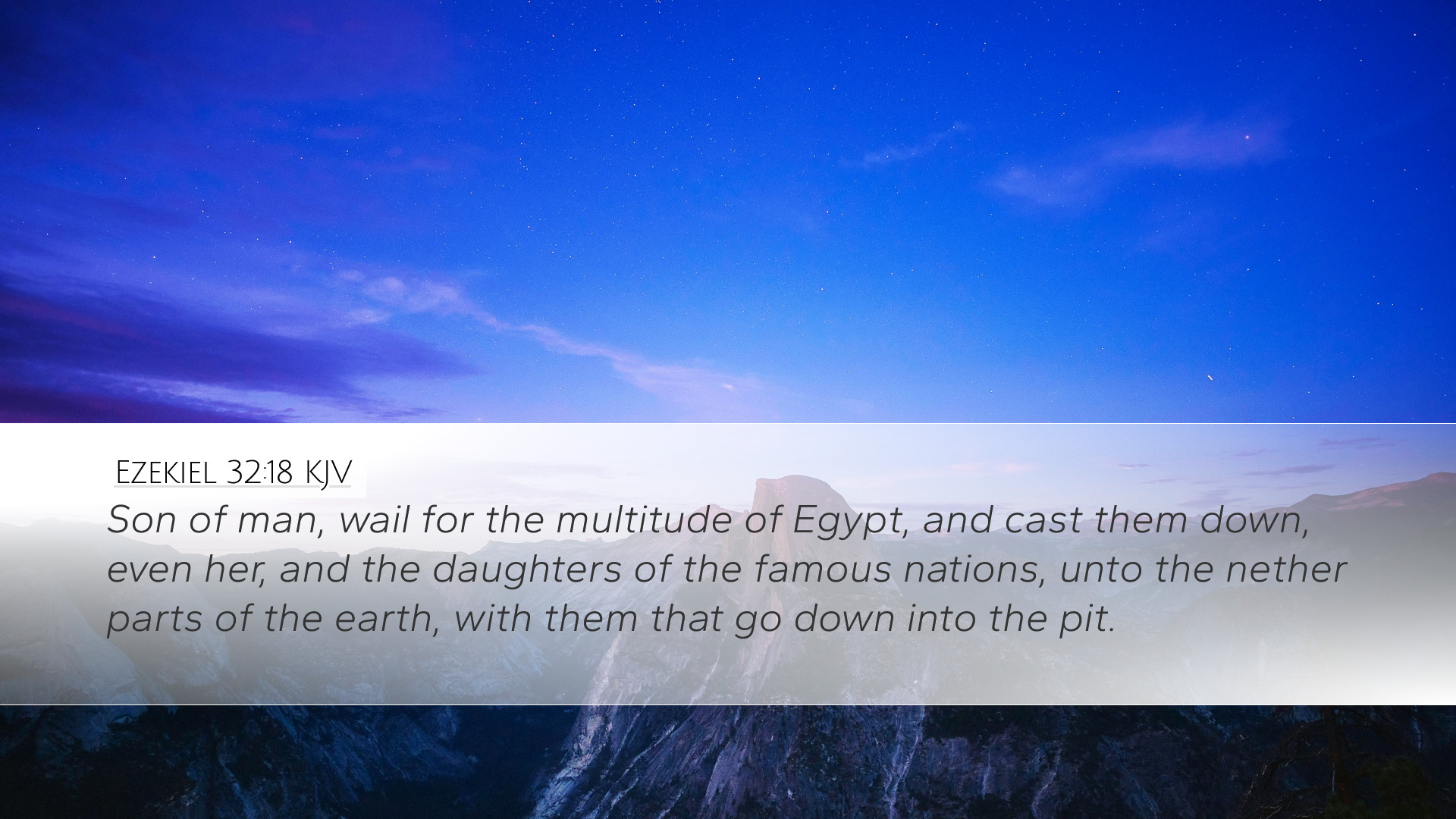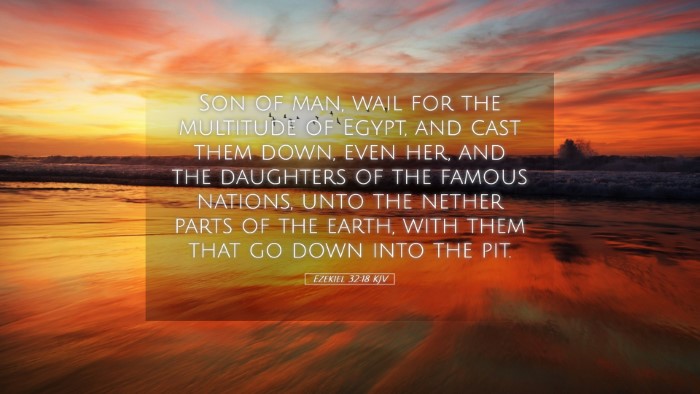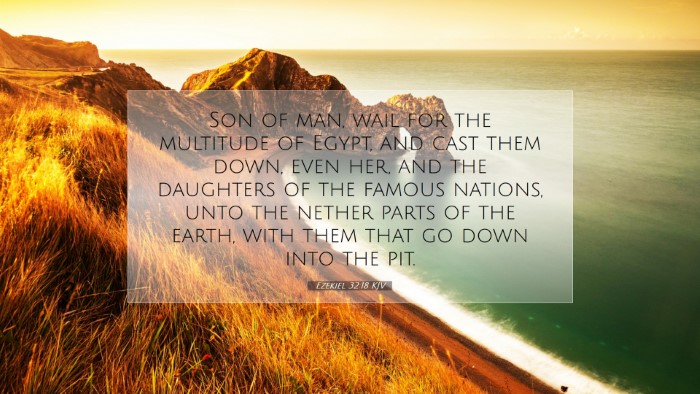Ezekiel 32:18 - A Commentary
Ezekiel 32:18 states: "Son of man, wail for the multitude of Egypt, and cast them down, even her, and the daughters of the famous nations, unto the nether parts of the earth."
Contextual Background
This verse belongs to a series of prophetic denunciations against Egypt, situated within the broader context of judgment pronounced by Ezekiel. It reflects the Lord's intention to humble Egypt amidst its pride and self-reliance. Historically, Egypt was not only a geographical location but also a symbol of oppression and idolatry against the sovereign plan of God.
Interpretation and Thematic Insights
-
The Call to Mourning:
Ezekiel is instructed to "wail" for Egypt, indicating the gravity of the impending judgment. Matthew Henry notes that the intense lamentation prescribed to Ezekiel underscores the tragic downfall of a once-great nation. This is significant not only for the Egyptians but also for the nations surrounding them, illustrating God's sovereignty over all nations.
-
The Multitude of Egypt:
The term "multitude" here implies the vast population and significant military might of Egypt. Albert Barnes emphasizes that the poetic imagery of casting down speaks to the complete downfall of their strength, reducing them to a state of nothingness.
-
The Daughters of the Famous Nations:
The reference to "the daughters of the famous nations" suggests a network of allied nations and their influence. Adam Clarke interprets this as a corporate lament for relationships and dependencies that were affected by Egypt's downfall. The demise of Egypt signifies a broader geopolitical impact, resonating with the idea that nations rise and fall according to divine providence.
-
The Nether Parts of the Earth:
The phrase "nether parts of the earth" metaphorically denotes the grave or the realm of the dead. As Henry points out, it illustrates the utter humiliation and spiritual death that ensues from God's judgment. The imagery calls to mind the fate of prideful nations, suggesting that even in death, Egypt’s prominent status will be diminished.
Theological Reflections
The overarching theme in this passage speaks to the sovereignty of God over nations and the temporal nature of earthly power. Ezekiel 32:18 serves as a reminder that divine judgment is impartial and affects both grand and humble alike. This extends a poignant warning against pride and reliance upon human strength rather than divine providence.
The Significance for God's People
For pastors and theologians, this passage calls for a nuanced understanding of the balance between God’s justice and mercy. The call to “wail” brings forth a posture of humility and recognition that no nation stands too high to be brought low by God. Whether in the context of personal or corporate application, the narrative urges the faithful to remain vigilant and not to become complacent in the pride of life or in earthly alliances that may be contrary to God’s will.
Practical Applications
-
Recognition of Divine Sovereignty:
Believers should position themselves under the authority of God, understanding that any earthly establishment not founded in Him is ultimately doomed to failure.
-
The Concept of Mourning:
The lamentation depicted in this verse reflects a heartfelt response to the downfall of others. This can lead believers to cultivate a spirit of compassion and empathy, even for those who may have opposed them.
-
Call to Intercession:
The prophet’s role in mourning illustrates the importance of intercessory prayer. It highlights a faithful approach to covering nations, communities, and individuals in prayer, seeking God’s mercy even in the face of judgment.
Conclusion
Ezekiel 32:18 serves as a sobering reminder of the fate of nations under God’s judgment. For pastors, students, and scholars alike, this verse offers profound insights into the nature of God’s sovereignty, the seriousness of complacency, and the need for intercession. In a world grappling with uncertainty, believers are called to anchor themselves in the steadfast nature of God, embracing the responsibility of being watchmen for their communities and nations, even as they navigate the complexities of a fallen world.


